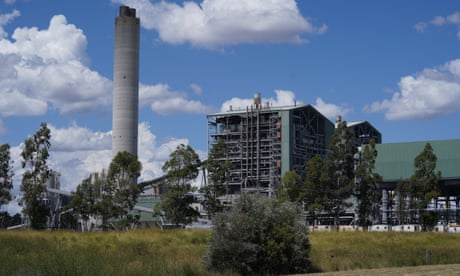Extract from The Guardian
Premier Steven Miles says laws prohibiting greenhouse gas storage in the basin will benefit farmers and the environment.
The Queensland government plans to legislate to ban the Great Artesian Basin (Gab) from being used for carbon capture and storage, ruling out future proposals similar to a Glencore development that was knocked back earlier this month.
On Friday, the premier, Steven Miles, will announce that the Gab – which covers 1,700,000 square kilometres of the state – will be protected from greenhouse gas storage, describing the move as a win for the state, the environment, and farmers.
The Gab is Australia’s largest groundwater basin, flowing under 22% of the continent including parts of Queensland, the Northern Territory, South Australia and New South Wales.

“I think the great artesian basin’s unique environmental, agricultural, economic and cultural significance is worth protecting,” Miles told the Guardian.
“I’ve listened to Queenslanders and I am making sure our government is doing what matters for the natural phenomenon that is the Great Artesian Basin.”
The state government last week rejected a proposal by mining giant Glencore for a liquified CO2 pilot scheme near Moonie on the Great Artesian Basin, using CO2 produced at the coal-fired power station at Millmerran.
State regulators found the process would likely cause an irreversible change in water quality, including increased concentrations of chloride, sulphate, lead and arsenic, among others.
Farmers’ organisations, including AgForce, were concerned the project would damage the basin, which is the only source of water for much of regional Queensland. The Queensland Farmers’ Federation called for a legislated permanent ban.
Carbon capture and storage (CCS) involves reducing the amount of CO2 released into the atmosphere from a fossil fuel project, usually by liquefying it and injecting it into underground reservoirs. The technology has not proven economically viable despite billions of dollars in potential government announced over the past two decades.
The sole commercial project operating in Australia, set up with $60m in federal support, was delayed for more than three years and has failed to reach its promised storage level since it began operating in August 2019.
The now-dead Glencore proposal was one of just two CCS projects under construction in Australia, though 16 are proposed.
The ban, which is expected to be legislated before the October election, also extends to oil or petroleum mining processes that use greenhouse gasses injected into the ground to extract the mineral , which is the method used at the Gorgon facility in Western Australia.
It outright prohibits activities involving greenhouse gas storage or the injection of a greenhouse gas stream into underground formations within the Great Artesian Basin.
However, they may be able to continue in other parts of the state, if granted approval under environmental assessment processes. A technical expert panel will review the safety aspects of greenhouse gas storage for areas outside the Great Artesian Basin.
“We will continue to review the safety aspects of greenhouse gas storage in the state to support future generations of Queenslanders and to ensure the Queensland’s great natural environment is preserved,” Miles said.
David Copeman from the Queensland conservation council said it was “great news”.
“Fossil fuel projects should not be using carbon capture and storage in the Gab as a justification for business as usual,” he said.
The CEO of the Queensland Farmers’ Federation, Jo Sheppard, said other projects had existing CCS exploration permits in the Gab, with the federation concerned that another project could emerge at any time.
She said the Queensland government was taking a “leadership role” in the absence of federal regulation and other Gab states should follow its lead.
“Industry said no, agriculture said no, local councils have said no, conservationists said no, and … the science has also said no [to CCS in the Gab],” Sheppard said.

No comments:
Post a Comment